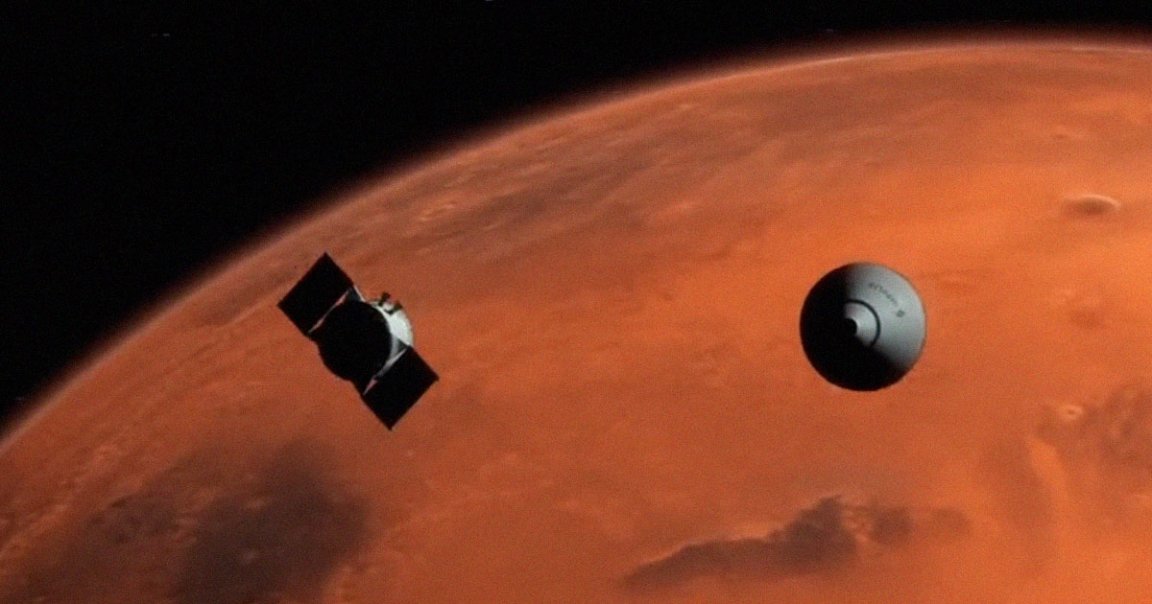
A pair of space startups have teamed up to launch the first-ever private mission to Mars — a highly ambitious plan, Ars Technica reports, given the fact that neither of the two have yet launched a single rocket.
The companies, rocket company Relativity Space, and payload delivery service Impulse Space, announced the joint venture today, promising the “first commercial payload” to Mars using Relativity’s “fully reusable, entirely 3D printed launch vehicle, Terran R.”
While the startups have a long way to go to successfully launch a mission to Mars — let alone safely land anything on the planet — they do have some serious engineering experience to work from.
Impulse was founded by Tom Mueller in September of last year, who has the rare distinction of being the very first employee that SpaceX hired almost two decades ago.
Mueller, a former lumberjack, ran the Elon Musk-led company’s propulsion department for more than a decade. He made substantial contributions to the engines that now power SpaceX’s workhorse rockets, including the Falcon 9 and Dragon spacecraft.
Now he’s facing the ultra-ambitious goal of launching a Mars mission as soon as 2024, roughly the same time window Musk is eyeing for a Starship mission to the Red Planet.
“This is a whole new era of spaceflight, and we want to be positioned to provide reliable, low-cost, in-space propulsion,” Mueller told Ars. “We want to do it all — orbital, lunar, interplanetary.”
The plan is for Impulse Space’s lander to use four thrusters to softly land on the Martian surface after being dropped off by the Mars Cruise Vehicle.
The goal is to deliver dozens of pounds of scientific payload to the Red Planet’s surface — if everything goes according to plan.
“One of the most challenging aspects of landing on Mars is the ‘glide stage,’ which involves an aeroshell to encapsulate the lander for the survival of Mars entry,” Mueller said in a statement. “With the power of our combined teams, experience and passion, I am confident this historic mission will be just one of many to come.”
Terran R, the rocket that will take the Vehicle and Lander into space in the first place, is Relativity Space’s “radically simplified” reusable rocket that combines “3D printing, artificial intelligence, and autonomous robotics,” according to the company’s website. It’s designed to launch over 20 metric tons to low Earth orbit.
The fact that Relativity has yet to launch its first rocket, it’s worth pointing out, makes a 2024 journey to Mars an absolutely astronomical goal. The company is hoping to launch Terran 1, its first iteration, by the end of the year.
Regardless of the outcome, Relativity and Impulse are hoping to provide a little more competition for the burgeoning private space industry.
“We’re big fans of SpaceX and Starship,” Relativity Space CEO Tim Ellis told Ars. “But there’s got to be more than one company working at this. I want to be the second company that steps forward and says this is important.”
“Hopefully there are many more,” he added.
READ MORE: Two companies join SpaceX in the race to Mars, with a launch possible in 2024 [Ars Technica]
More on Relativity: A Fully 3D-Printed Rocket Is Not as Crazy as it Seems. Investors Agree.